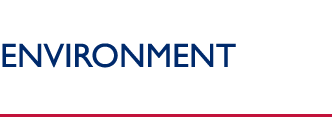The Community-Watersheds Partnership Program
Background
In order to initiate a stronger leadership role on water issues, The Coca-Cola Company (TCCC) worked with a non-governmental organization, the Global Environment and Technology Foundation (GETF) and USAID to develop a global partnership in the water sector that would address specific local water resources and development needs, while also advancing Coca-Cola’s corporate objectives in social responsibility, cleaner production, local community support, and risk management. The Community-Watersheds Partnership Program Global Development Alliance was born to support collaborative water sector interventions in developing countries around the world.
Through the Community-Watersheds Partnership Program, USAID and the Coca-Cola system work together to provide incentive grants to local business units and USAID missions to carry out water-related projects in target communities. The purpose of the partnership is to promote water resources management and service delivery in countries where both partners operate. In its first year, the Community-Watersheds Partnership Program was funded with $1 million from USAID matched by $1.5 million from TCCC.
Projects developed under the alliance can address any important water resources management or water service delivery problem facing the local communities, and must follow internationally established principles of the sector including good governance and public participation, financial and ecological sustainability, and social and gender equity. Projects must also directly support both the strategic development priorities of the local USAID mission as well as the corporate interests of TCCC locally.
Accomplishments and Outcomes
The first two projects supported by the Community-Watersheds Partnership Program are located in Bolivia and Mali. These activities, as well as additional interventions under development, reflect the diversity of water-related challenges that face both the business and development sectors, and highlight the numerous opportunities for intersection of the two. Two additional projects in Indonesia and Malawi will be initiated during 2006, and the partners hope to extend the program into 2007.
In Mali, TCCC faces water resources opportunities and challenges, among them a desire to bring the local bottling facility in Bamako (BRAMALI) into compliance with global corporate standards for wastewater treatment. TCCC committed to a local investment in plant wastewater management, coupled with support to community interventions in water supply, sanitation, and hygiene. USAID’s local NGO partners are developing and rehabilitating water points and promoting sanitation and hygiene in peri-urban Bamako (near the local bottling plant), as well as rural communities in the Ségou, Mopti and Timbuktu regions. In addition, once the bottler wastewater treatment plant is operational in 2006, NGO partners will explore both use of the treated wastewater for small-scale irrigation, as well as the potential application of waste biosolids as a soil conditioner, with the goal of increasing food security and generating revenues for local families.
In Bolivia, the local Coca-Cola bottler EMBOL is located in the Tarija municipal watershed which experiences chronic surface and groundwater shortages due to a number of factors including inadequate water supply service development, wasteful water use practices by a number of actors, and lack of sustainable watershed management. As a leading industrial user of water in the area, EMBOL was motivated both to improve its own internal management to reduce water use and prevent water contamination, and to become interested in the partnership as a way to build on its past investments in biodiversity, upper watershed management, and cleaner production in Tarija, by engaging an important industrial actor and strengthening local participatory governance models for water resources management.
The Community-Watersheds Partnership Program is still new and faces many challenges in its efforts to spread a forward-looking vision throughout two highly decentralized, global organizational structures. Both organizations seek to successfully demonstrate that community development and business objectives are in many cases naturally allied in the water sector, and can together create a much greater positive impact in developing countries. Eventually, TCCC and USAID envision that the Community-Watersheds Partnerships model will be fully internalized within each of their organizational structures, fostering the formation of many additional locally-developed alliances in the water sector that go well beyond the boundaries of the existing global program, and embrace other actors beyond the two founding partners.
Back to Top ^
|


